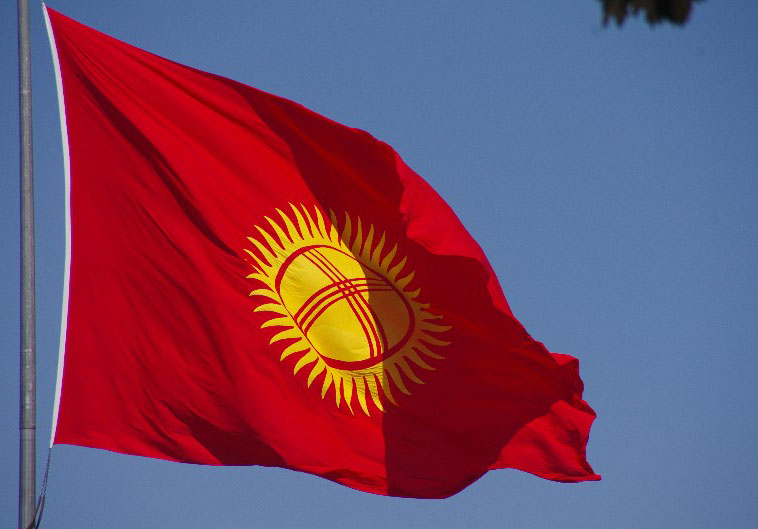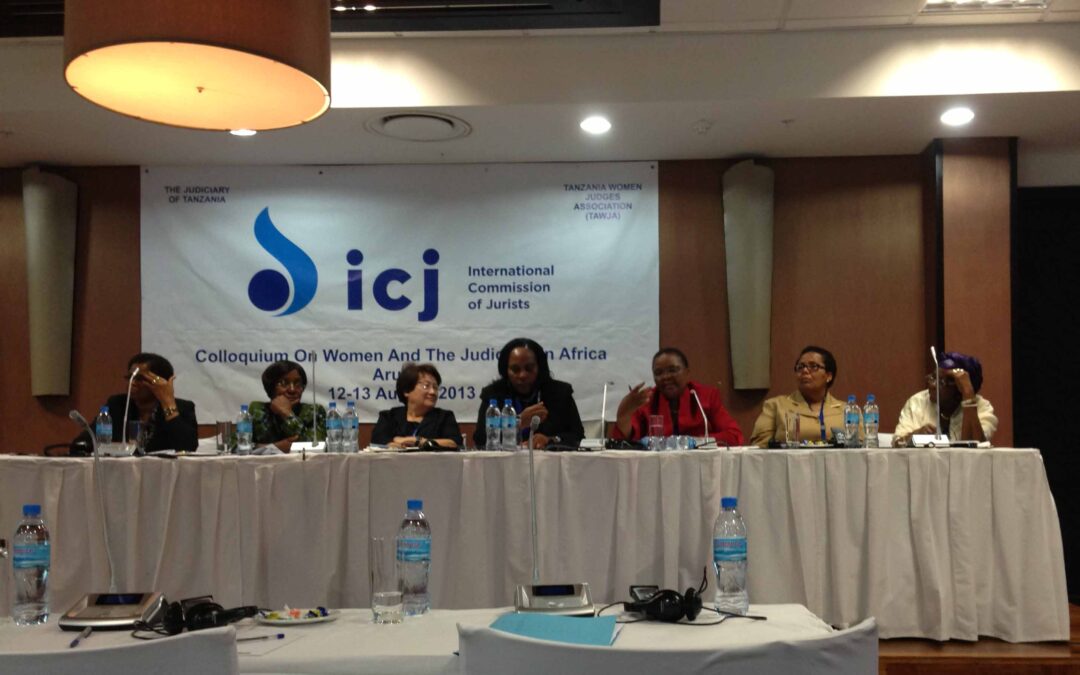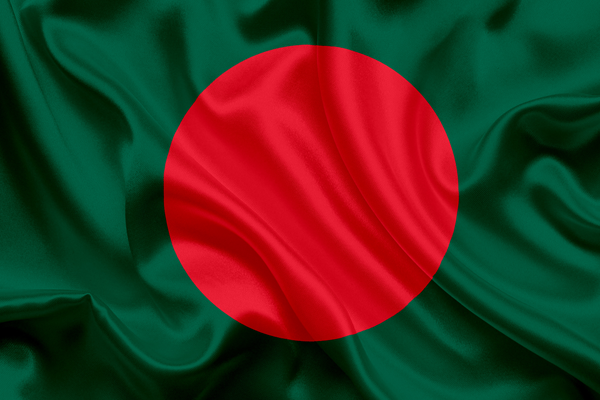
Aug 23, 2013 | News
The ICJ is calling on the Bangladesh authorities to immediately withdraw contempt of court charges against Human Rights Watch.
“Bangladesh must not impose contempt of court charges to restrict the important work carried out by human rights defenders, including international human rights groups,” said Alex Conte, Director of the ICJ’s International Law and Protection Programmes. “The contempt charges are inconsistent with Bangladesh’s obligations as a party to the International Covenant on Civil and Political Rights to respect freedom of expression.”
On 20 August 2013, prosecutors for the International Crimes Tribunal (ICT) in Bangladesh charged Human Rights Watch with contempt of court for allegedly “scandalizing the judiciary” after the group had expressed concern that the trial of Ghulam Azam, former head of the Islamist group Jamaat-e-Islami Azam’s trial was “deeply flawed” and did not meet international fair trial standards.
The group stated, based on credible media reports, that “judges improperly conducted an investigation on behalf of the prosecution” and that there was “collusion and bias among prosecutors and judges”.
“It is paramount that those responsible for committing atrocities – notably unlawful killings and the widespread and systematic use of rape as a form of torture – during Bangladesh’s war of liberation in 1971, should be prosecuted before competent, independent and impartial courts in proceedings that meet international fair trial standards,” Conte added. “Muzzling voices that highlight the deficiencies of the ICT and prosecutions before it distract from that enormously important task.”
The ICJ, as well as several Bangladeshi and international observers, have expressed similar concerns that the International Crimes Tribunal does not adhere to international standards of a fair trial.
“The charges against Human Rights Watch are an abuse of prosecutorial discretion to attack a highly respected human rights group for pointing out serious and well-documented problems with the Bangladeshi International Crimes Tribunal. Attacking the messenger does not address nor resolve the very real concerns about the operations of the ICT,” said Conte.
Under international norms, judges and the judicial process are not immune from public criticism. The Bangalore Principles on Judicial Conduct clarify that “since judicial independence does not render a judge free from public accountability, and legitimate public criticism of judicial performance is a means of ensuring accountability subject to law, a judge should generally avoid the use of the criminal law and contempt proceedings to restrict such criticism of the courts”.
Similarly, the Commonwealth (Latimer House) Principles on the Accountability of and the Relationship Between the Three Branches of Government also stress that “criminal law and contempt proceedings should not be used to restrict legitimate criticism of the performance of judicial functions”.
The charges against Human Rights Watch were preceded by the arrest on 10 August 2013, of Adilur Rahman, Secretary of the human rights group Odhikar for allegedly “distorting information” on a police operation on a Hefazat-e Islam rally in May this year. Odhikar reported that 61 people had been killed in the police crackdown on the rally. The Government disputed the number of casualties.
“We are deeply concerned that the contempt of court charges against Human Rights Watch and the charges against Adilur Rahman, are expressly intended to silence dissent and discourage individuals and organizations from raising legitimate concerns about human rights violations and the rapid deterioration of the rule of law in Bangladesh,” Conte further said. “Rather than charging them with contempt, the authorities should investigate the allegations of rights violations made by Human Rights Watch and Adilur Rahman”.
The UN Declaration on Human Rights Defenders underscores that “everyone has the right, individually and in association with others, to promote and to strive for the protection and realization of human rights and fundamental freedoms at the national and international levels”.
The Declaration also highlights that human rights defenders have the right to “freely to publish, impart or disseminate to others views, information and knowledge on all human rights and fundamental freedoms” and to hold opinions and draw public attention to the observance of human rights.
“We urge the Bangladesh authorities to immediately drop the charges against Human Rights Watch and Adilur Rahman, which are being used to restrict the legitimate exercise of the right to freedom of expression, and allow human rights defenders to freely carry out their work,” said Conte.
Contact:
Alex Conte, Director, International Law & Protection Programmes (Geneva), t: +41 79 957 2733; email: alex.conte(a)icj.org

Aug 22, 2013 | News
The ICJ called upon the Indian Government to halt the imminent execution of Professor Devinderpal Singh Bhullar.
In August 2001, Professor Bhullar was sentenced to death under the Terrorist and Disruptive Activities (Prevention) Act following his conviction on charges related to the bombing of the All Indian Youth Congress in New Delhi in 1993.
“Those who commit acts of terrorism should be prosecuted before competent, independent and impartial courts that meet international due process standards”, said Ben Schonveld, ICJ’s South Asia Director.
“However, while those responsible for such acts must be held to account, the ICJ opposes the death penalty in all circumstances, without exception as it is an inherently cruel and irreversible punishment that violates the right to life.”
“Furthermore, there are serious questions about whether Professor Bhullar’s trial was in accordance with the requirements of international law”, Schonveld added. “His conviction and death sentence are based solely upon an alleged confession he made in police custody, which he later retracted, claiming it was extracted under torture.”
The ICJ says that the execution of an individual in these circumstances would violate India’s obligations under the International Covenant on Civil and Political Rights to respect the right to life, the right to a fair trial and the absolute prohibition of torture.
In May 2011, President Pranab Mukherjee rejected Professor Bhullar’s petition for clemency. The Supreme Court rejected his earlier plea on 12 April 2013 to commute the sentence to life imprisonment, and upheld its decision on 14 August 2013.
India ended an eight-year moratorium on the death penalty with the executions of Ajmal Kasab on 21 November 2012 and Mohammad Afzal Guru on 9 February 2013.
“The resumption of the death penalty by India is contrary to the global and regional movement towards the abolition of the death penalty”, said Schonveld.
The ICJ reminds that 150 countries worldwide, including 30 states in the Asia-Pacific region, have abolished the death penalty in law or in practice.
The ICJ urges the Indian Government to immediately reinstate the moratorium on the death penalty, with a view to abolishing the death penalty permanently and acceding to the Second Optional Protocol to the International Covenant on Civil and Political Rights on the abolition of the death penalty.
Over the years, the member states of the United Nations have adopted various instruments in support of the call for the worldwide abolition of the death penalty. In 2007, the UN General Assembly adopted a resolution emphasizing that “that the use of the death penalty undermines human dignity” and calling for the establishment of a moratorium on the use of the death penalty “with a view to abolishing the death penalty”.
The resolution was reaffirmed in 2008, 2010, and most recently in December 2012, when and overwhelming majority of 110 UN Member States voted in favor of a worldwide moratorium on executions as a step towards abolition of the death penalty.
Contact:
Ben Schonveld, ICJ South Asia Director, (Kathmandu); t: +977 9804596661; email: ben.schonveld(a)icj.org

Aug 21, 2013 | News
The ICJ today called on the government of the Kyrgyz Republic to take urgent measures to prevent repeated attacks on lawyers.
The call followed reliable reports of an assault on two lawyers in a court in the south of the country.
On 20 August 2013, lawyers Dinara Medetova and Kubanychbek Zhoroyev were physically attacked following a hearing in the Osh Regional Court.
This is the latest in a series of such attacks, which have threatened the lives and safety of lawyers, have hindered lawyers in defending the rights of their clients, and have undermined the fairness of trials.
The ICJ understands that the Ministry of Interior has denied that the attack on the lawyers took place. However this attack is confirmed by the accounts of reliable witnesses.
The ICJ is concerned that, in the face of repeated attacks of this kind, the government and law enforcement authorities have consistently failed to take effective measures to prevent them, or to ensure that they are effectively investigated and the perpetrators brought to justice.
“Denying that these attacks take place can only perpetuate the problem,” said Róisín Pillay, Director of the ICJ Europe Regional Programme. “What is needed is an independent, impartial and thorough investigation into the incident.”
“The government must work with the law enforcement authorities to ensure that the safety of lawyers, witnesses and defendants in criminal trials is ensured throughout the country, and that the Krygyz Republic protects the right to a fair trial, as required by its international legal obligations,” she added.
The two lawyers were defending Makhamatkir Bizurukov, an ethnic Uzbek, in a trial related to the 2010 ethnic clashes in the south of the country.
According to information available to the ICJ, the lawyers were repeatedly interrupted, insulted and threatened by members of the public in the course of the hearing, creating an atmosphere of intimidation which prevented the lawyers from effectively defending their client.
During the hearing, the lawyers also received death threats to which the judge did not respond.
After the hearing, reports indicate that around ten women, supporters of the victims in the case, physically attacked the lawyers.
“If it hadn’t been for my colleague who helped me to escape, I could have been very seriously injured or even dead”, lawyer Medetova told the ICJ. The lawyer later returned to Bishkek due to her fear of further attacks.
This attack took place despite an earlier written request by the defence lawyers in the case submitted to the local Police Department, President of the Court and the Osh Regional Prosecutor that security measures be taken during the hearing, in light of attacks on the accused, witnesses and lawyers at a previous hearing in the same case.
The ICJ understands that the head of the Police Department and the Prosecutor had assured lawyer Medetova that measures would be taken to guarantee the safety of the lawyers.
In the event however, the police took no action to prevent or halt the attacks on the lawyers in the courtroom.
Following the attack, the police reportedly told the lawyers that they could not protect them, as the supporters of the victim would consider such protection as bias in favour of the accused.
The ICJ recalls that international standards, including the UN Basic Principles on the Role of Lawyers, require that “where the security of lawyers is threatened as a result of discharging their functions, they shall be adequately safeguarded by the authorities”.
The ICJ urges the government to unequivocally and publicly condemn these attacks and to ensure that effective measures are taken to investigate them and bring those responsible to justice.
CONTACTS:
Róisín Pillay, Director, ICJ Europe Programme, roisin.pillay(a)icj.org
Temur Shakirov, Legal Adviser, ICJ Europe Programme, temur.shakirov(a)icj.org
Kyrgyzstan-Attack on lawyers-news-press release-2013-ENG (full text in pdf)
Kyrgyzstan-Attack on lawyers-news-press release-2013-RUS (full text in pdf)

Aug 15, 2013 | News
Women judges from across Africa participated in the first ICJ Colloquium on Women and the Judiciary on 12 and 13 August in Arusha, Tanzania.
The Arusha Colloquium, was opened by the Chief Justice of Tanzania and was hosted in collaboration and partnership with the Tanzania Women Judges Association and the Judiciary of Tanzania.
It enabled thirty five senior women judges from over fifteen African jurisdictions to come together to share their stories and reflect on and discuss their personal and professional experiences and challenges as women within the judiciary.
They were joined by over 15 women human rights defenders and lawyers.
Colloquium themes included the importance and role of women within the judiciary, independence and impartiality issues effecting women judges, appointment and promotion procedures, education and training needs and the role of women judges associations.
Discussions also addressed the role of the judiciary in advancing gender equality, women’s access to justice and protection of women human rights defenders.
The Colloquium marks the beginning of an ICJ multi-year initiative on women judges, lawyers and human rights defenders as agents of change.

Aug 13, 2013 | News
The ICJ today called on the Nepalese Government to release the body of Tibetan Monk Karma Nyidon Gyasto to the Tibetan community to carry out his last rites in accordance with Nepal’s laws and international obligations.
“We are deeply concerned about this rejection of Nepal’s laws and its international obligations,” said Asia Director Sam Zarifi.
On 5 August 2013, a Tibetan refugee, Karma Nyidon Gyasto self-immolated at the Boudha Stupa, in Kathmandu. He was taken to Tribhuvan University Teaching Hospital, where he was later declared dead. His body is apparently being held in the hospital’s mortuary.
On 12 August 2013, the Tibetan Refugee Welfare Office, registered an application to the Office of the Chief District Officer in Kathmandu to perform funeral rites. The Tibetan Refugee Welfare Office is acting on behalf of Gyatso given the lack of clear legal status of the resident Tibetan refugee community.
This is the second protest by self-immolation in Nepal. The first was in February 2013. In that case the government refused to hand over the body for funeral rites.
The refusal to hand over the body contravenes Nepal’s national laws.
The Interim Constitution, under Article 23 guarantees the right to religion, including the right to practice and perform religious rites.
Furthermore Article 17 provides that every community in Nepal has the right to preserve and promote its culture.
The action also contravenes Nepal’s international obligations.
Article 18 of the International Covenant on Civil and Political Rights (ICCPR) provides for the right to a religion or belief of his choice, and freedom, either individually or in community with others and in public or private, to manifest his religion or belief in worship, observance, practice and teaching.
Furthermore, General Comment No 22 on Article 18 of the ICCPR states that this right includes ritual and ceremonial acts.
Under the Covenant, the Government of Nepal is obliged to respect and ensure the religious and cultural rights of the Tibetan refugee community, who have a legitimate right to receive the body and hold a funeral according to their religion and culture.
CONTACT:
Sam Zarifi, ICJ Asia-Pacific Director, (Bangkok), t: +66 807819002; email: sam.zarifi(a)icj.org

Aug 12, 2013 | News
The ICJ is calling for the immediate release of Adilur Rahman Khan, a prominent Supreme Court lawyer and human rights defender in Bangladesh.
Mr Khan is the Secretary of Odhikar, a Bangladeshi human rights organization that has documented human rights violations allegedly carried out by Bangladeshi security forces.
Plainclothes police officers arrested Mr Khan from his home on 10 August 2013 without an arrest warrant.
“Adilur Rahman Khan is being charged for the lawful exercise of the right to freedom of expression, so Bangladeshi authorities must immediately and unconditionally drop all charges against him and release him,” said Ben Schonveld, ICJ’s South Asia director. “Until the charges are dropped, he must be released on bail.”
Adilur Rahman Khan was charged on 11 August under section 57 of the Information and Communication Technology Act, 2006, for distorting information regarding a police operation on a Hefazat-e Islam rally in May this year.
Odhikar reported that 61 people had been killed in the police crackdown on the rally. The government denied any casualties.
He was not allowed to speak with his family or his lawyers until August 11, when a Magistrate’s Court refused bail and remanded him for a further five days of custodial interrogation.
On August 12, the High Court Division of the Supreme Court stayed the remand order, directing that Mr. Khan be sent back to jail, where he could be interrogated ‘at the gate of the prison.’
“Adilur Rahman Khan’s arrest is illustrative of a deeply worrying government strategy to muzzle and discredit the work of human rights defenders and distract attention from human rights violations,” added Schonveld. “The High Court’s stay of the remand order is a positive development. However, the Bangladesh government must uphold its obligations under domestic and international law to guarantee freedom of expression and allow human rights defenders to carry out their work.”
Article 19 of the International Covenant on Civil and Political Rights (ICCPR), to which Bangladesh is a party, guarantees ‘freedom to seek, receive and impart information and ideas of all kinds, regardless of frontiers, either orally, in writing or in print, in the form of art, or through any other media of his choice.’
The UN Basic Principles on the Role of Lawyers provide that lawyers must be allowed to carry out their work ‘without intimidation, hindrance, harassment or improper interference.’
Further, lawyers shall, in particular, have the right to take part in public discussions of matters concerning the law, administration of justice and the promotion and protection of human rights.
In addition, the UN Declaration on Human Rights Defenders clarifies that States must create an enabling environment for human rights defenders and take all necessary measures to protect human rights defenders ‘against any violence, threats, retaliation, de facto or de jure adverse discrimination, pressure or any other arbitrary action as a consequence of his or her legitimate exercise of his or her rights.’
CONTACT:
Ben Schonveld, ICJ South Asia Director (Kathmandu), t: +977 14432651; email: ben.schonveld(a)icj.org
Sam Zarifi, ICJ Asia-Pacific Director, (Bangkok), t: +66 807819002; email: sam.zarifi(a)icj.org










